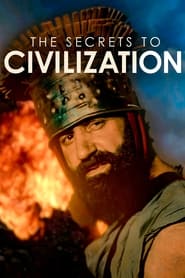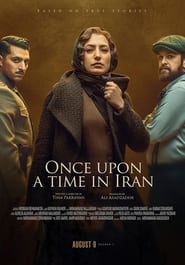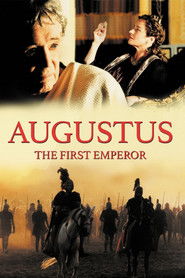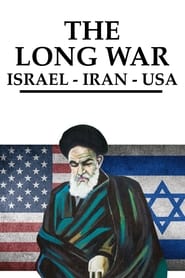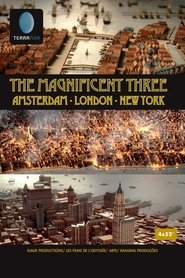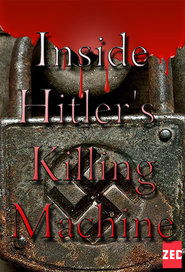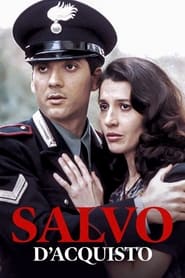Top Rated War Politics TV Series - Page 30
-
Avalanche
2021
Avalanche
2021
star 7.4Seiichi Habu is a member of the mysterious outlaw group Avalanche. The group exists at a time when moral hazards run rampant among politicians, bureaucrats, businesses, and even among ordinary people. -
The Secrets to Civilization
2021
star 6.6Secrets to Civilisation is a groundbreaking History series which explores the recent explosion in data about our planet's past, offering a completely fresh perspective on the ancient world from the Bronze Age to the fall of Rome. -
Once Upon a Time in Iran
2021
star 7.8It is the story of a family on the first of September 1941, which undergoes changes during the occupation of Iran by the Allies. -
Sedat Peker vs AKP
2021
Sedat Peker vs AKP
2021
star 9.8A mafia leader with deep connections to the government is ousted and his house raided. Now he is seeking revenge against the ones done him wrong by exposing the dark connections between the mafia and the government. -
Augustus: The First Emperor
2003
star 4.3Old and ill, Augustus, the man who changed the fortunes and destiny of an empire by completing Julius Caesar's project, recounts the two most important phases of his life: his rise to power and his fight against the pressure of his family. -
Iraq, Destruction of a Nation
2021
star 8.8The evolution of the former Saddam Hussein's Baathist regime, from the start of the 1980's Iran-Iraq war to the excalation of the ISIS/Daesh insurgency. in the 2000s. -
The Long War: Iran, Israel, USA
2020
star 7.5Today, Israel and the United States are Iran's enemies par excellence. Their reconciliation seems impossible. Is the history of these three countries the chronicle of a war foretold, delayed for decades but inevitable? -
Renascence
2020
Renascence
2020
star 7.6After Queen Yao Moxin is killed in a palace conspiracy, her soul transfers into her younger sister Yao Mowan. Surviving an attack and losing her memories, she slowly recovers her past and sets out to exact revenge—taking down her enemies one by one within the treacherous royal court. -
Peacemaker
2020
Peacemaker
2020
star 4.8Finnish peace negotiator Ann-Mari Sundell has recently retired from her post as a crisis response adviser in the Ministry for Foreign Affairs. Suddenly, she is invited by the UN mandate to lead an international conflict resolution process in Turkey. As the peace talks proceed, Ann-Mari has to reconcile with her past before her personal life comes in the way of the whole peace process. -
Sui Tang Heroes
2003
-
The Last Journey Of The Vikings
2020
star 7.4Nearly 1,000 years ago, the Vikings left Scandinavia and settled across Europe - giving their name to Normandy along the way - before their Norman descendants seized the English throne at the Battle of Hastings in 1066. But what do we really know about them? By combining expert analysis with compelling drama, 'The Last Journey of the Vikings' (Swedish title: 'Vikingarnas sista resa') tells a new and often surprising story about this complex people. -
The Story of Drug Trafficking
2020
star 7.4This series explores the history of drug trafficking from a political perspective and reveals the murky role played by many states which have used the drug trade as an instrument of power. Opium, heroin, cocaine, and designer drugs have sparked wars, financed militias, and brought down states. -
The Magnificent Three: Amsterdam, London, New York
2017
star 7.8The story, from 1600 to the present day, of the ruthless competition between Amsterdam (Netherlands), London (UK) and New York (USA) for world trade supremacy, as great minds blazed paths to glory and iconic architecture soared skyward. -
Mobile Suit Gundam MS IGLOO 2: Gravity Front
2008
star 7.4The storyline takes place during the One Year War of the Universal Century. It explores the ground phase of the One Year War from the Earth Federation's point of view. -
Decolonisation
2020
Decolonisation
2020
star 8.8The history of decolonization from the point of view of colonized peoples, an epic story that still resonates and reverberates to this day. -
Life of a Mistress
2018
Life of a Mistress
2018
star 4.2Polina Lebedeva, daughter of the childless prince Alexei Petrovich Golovin, is the most enviable bride of the Yamburg district. During the ball in honor of her birthday, Alexei Petrovich dies of a heart attack. This grief is only the beginning of hard trials, destined for the girl .. -
Inside Hitler's Killing Machine
2016
star 5.6May 1945: With the end of the war and the surrender of the Third Reich, the world discovered the full horror of a genocidal system on a scale never before seen in the history of humanity. The elimination of millions of individuals had been meticulously planned by a regime whose organization and methods were just beginning to be understood. -
Salvo D'Acquisto
2003
Salvo D'Acquisto
2003
star 5.6During World War II, 22-year-old Carabinieri deputy brigadier Salvo D'Acquisto makes an heroic gesture of self-sacrifice by "confessing" an act of sabotage for which 22 civilians had been rounded up by the Germans, and is executed by firing squad in their place on September 23, 1943. -
Raafat Al Haggan
1988
Raafat Al Haggan
1988
star 8.3Revolves around a national epic in the files of the Egyptian intelligence on the biography of the Egyptian hero, Rifat Ali Suleiman Al-Jamal, who was planted inside the Israeli community to spy for the Egyptian intelligence. He was instrumental in preparing for the October War. -
The Red
2014
The Red
2014
star 7.6In 1937, the Japanese imperialists launched a brutal war of aggression against China. Xu Tian was a color-blind accountant in Shanghai with military training who decided to stay close to his mother after the death of his father. After an accident involving a group of patriots led by a friend of his late father, he was touched by the patriotic spirit. He used his sharp mind to help the patriots transporting important materials, which also drew the attention of Japanese occupying the city to himself. During this period, he befriended Jin, a conman-turned-businessman and Tielin, a police officer working in the Shanghai French Concession. At the same time, pharmacist Tian Dan rented a room in Xu's house after losing her parents in an incident Xu was deeply involved. On the backdrop of the national crisis, people were living their intertwined lives with their own agenda, be it for revenge, for duty, for self-interest, or for ideology.
 Netflix
Netflix
 Amazon Prime Video
Amazon Prime Video
 Apple iTunes
Apple iTunes
 Apple TV Plus
Apple TV Plus
 Disney Plus
Disney Plus
 Google Play Movies
Google Play Movies
 Paramount Plus
Paramount Plus
 Hulu
Hulu
 HBO Max
HBO Max
 YouTube
YouTube
 fuboTV
fuboTV
 Peacock
Peacock
 Peacock Premium
Peacock Premium
 Amazon Video
Amazon Video
 The Roku Channel
The Roku Channel
 AMC+
AMC+
 Kocowa
Kocowa
 Hoopla
Hoopla
 The CW
The CW
 Vudu
Vudu
 Starz
Starz
 Showtime
Showtime
 PBS
PBS
 Pantaflix
Pantaflix
 FXNow
FXNow
 Tubi TV
Tubi TV
 Kanopy
Kanopy
 Comedy Central
Comedy Central
 Crunchyroll
Crunchyroll
 Microsoft Store
Microsoft Store
 Redbox
Redbox
 Sun Nxt
Sun Nxt
 ABC
ABC
 DIRECTV
DIRECTV
 Crackle
Crackle
 Fandor
Fandor
 Plex
Plex

